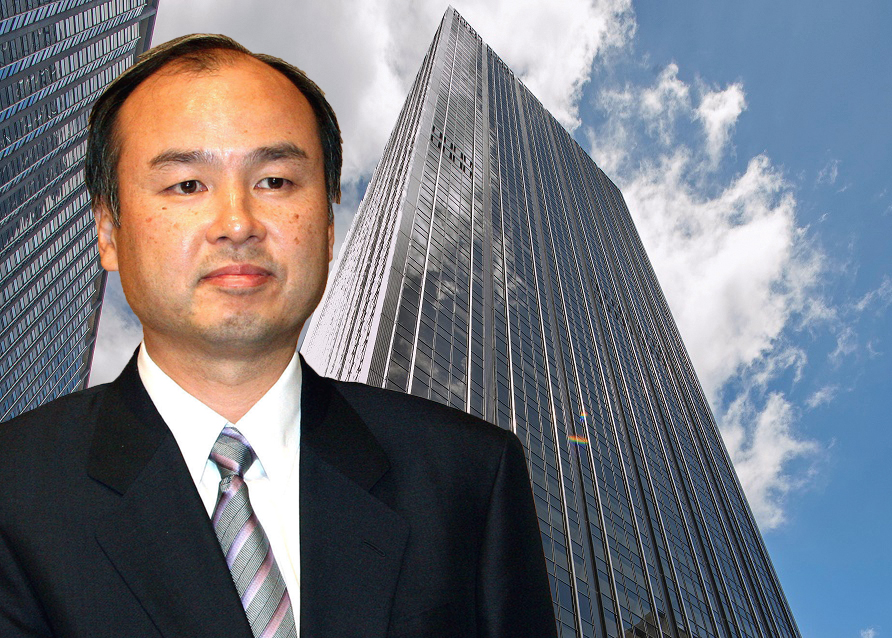One venture that stands out from the rest is SoftBank’s $3.3 billion all-cash purchase of Fortress Investment Group — a major Manhattan property investor and lender — at the end of last year. While the move might make perfect sense for a traditional real estate or financial firm, it’s less clear-cut for Masayoshi Son’s tech-focused enterprise. “At first glance, it seemed like a major departure for SoftBank to buy an old-school credit-focused private equity firm,” said Dean Ungar, vice president and senior analyst at Moody’s Investors Service.
Indeed, SoftBank’s other recent real estate plays have all been tied to young startups looking to innovate. The advantage of devouring a 20-year-old global investment manager with more than $40 billion in assets, on the other hand, was less apparent when the deal was first reported. But Vision Fund head Rajeev Misra — who briefly worked at Fortress as a senior managing director and partner in 2014 — recently told the New York Times that the move was part of a larger plan to create an alternative asset investment arm.
Related: Will SoftBank’s splashy real estate plays pan out?
For years, a small, ragtag group of investors based in SoftBank’s Tokyo and London offices have searched for potential deals. Now, through the Fortress acquisition, Son’s firm will be able to take advantage of a more institutionalized structure that includes investor relations, compliance and trading departments as well as an investment committee.
SoftBank also plans to form a London-based firm called SoftBank Financial Services. Misra will head the 1,000-person operation. And Misra, like Son, thinks big. “My vision is to become one of the largest managers of alternative assets in the world,” he told the Times in March.
Misra intends to market Fortress-branded funds for debt and private equity to some of the Vision Fund’s biggest backers in the Middle East. He also said there is the potential for SoftBank to acquire similar, but smaller, investment firms.
Inside Fortress, though, sources said the day-to-day operations have not changed much. It is not clear if SoftBank may also take advantage of Fortress’ formidable role in New York’s real estate market. The company, which is led by Peter Briger and Wesley Edens, manages more than $40 billion in assets globally. Fortress notably sold Stuyvesant Town-Peter Cooper Village in 2015 — through its special servicer subsidiary CWCapital — for $5.3 billion. It’s also an equity partner on two large mixed-use Times Square projects at 1568 Broadway and 701 Seventh Avenue, as well as an active lender, having recently provided acquisition financing for Ian Bruce Eichner and Lincoln Equities’ Crown Heights megaproject. Fortress declined to comment for this story.
For Fortress, having a new parent company played well with some of its own interests. The deal allowed Fortress to go private again, marking the first time a publicly traded U.S. private equity firm has delisted. “Fortress wasn’t interested in being public anymore,” Ungar said. “They didn’t have a great experience. The volatility of the stock price and the short-term focus of the investors were at odds with the company’s long-term view.” The company’s stock had closed 58 percent below its IPO price in 2007.
But the newfound privacy may be deceiving. SoftBank’s headline-grabbing acquisition has already drawn increased scrutiny of Fortress’ dealings. Shortly after the deal closed in December, Fortress turned heads for issuing $57 million in preconstruction financing for Kushner Companies’ long-delayed two-tower project in Jersey City. Kushner Companies, formerly led by White House senior adviser Jared Kushner, has been under investigation by the U.S. attorney’s office and U.S. Securities and Exchange Commission over how it marketed its White House “connections” to appeal to EB-5 investors.
Fortress is also expected to gain more access to limited partners in Asia through SoftBank. And while the alternative asset manager plans to operate independently, some say SoftBank won’t hesitate to utilize Fortress’ many platforms — including its massive real estate arm.
“SoftBank isn’t doing this out of the goodness of its heart,” Ungar said. “I’m sure Masa and the Vision Fund will explore other ways Fortress can benefit the whole organization.”
